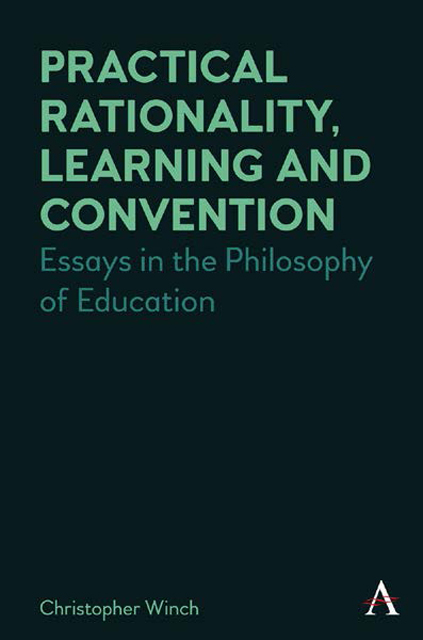Chapter Ten - Professional Knowledge, Expertise and Perceptual Ability
Published online by Cambridge University Press: 09 December 2022
Summary
Introduction
This article addresses the role of perceptual knowledge (knowledge by acquaintance) in the development of expertise in professional contexts. It seeks to answer the question as to how, if at all, does heightened knowledge by acquaintance inform a high level of professional know-how? In many professional contexts, successful action requires the articulation of various epistemic capacities: to draw on relevant systematic knowledge, to understand the nature of the problem faced, to perceive the essentials in complex situations and to judge and then to act appropriately. The aim will be to bring together philosophical and empirical considerations to show how best to understand the ability to perceive the essentials in complex situations and how this ability bears on the ability to judge and to act appropriately in professional contexts.
Perception Plays a Different Role in Different Language Games
It is through acting on and reacting to our environment, natural and social, that we acquire perceptual concepts. We acquire them in a social milieu in which we learn to recognise and speak about those things in our environment that affect and interest us. The language games that we thus learn to participate in concern relatively permanent features of our environment, shared with others (Strawson, 1961). The concepts that we possess of substances, processes, events and other people are acquired through action and observation, but necessarily also through learning our native language through interaction with adults. Perceptual concepts are acquired through social intercourse, rather than through introspection and labelling. They are made manifest through our attempts to communicate and to act on the world. They grow through our participation in normative activities (Baker and Hacker, 1985) in which adults play a predominant role.
We also acquire psychological concepts and concepts of sensation through the same means, but our acquisition of sensation concepts depends on our prior grasp of perceptual concepts. We learn about colour, texture, solidity, viscosity etc. through encountering objects, processes and events that manifest such properties and we learn the language of perception through communication with adults in the course of such experiences. Learning to report on our own states, using the same or similar vocabulary, occurs when we acquire the ability to apply to ourselves concepts that we first applied to our environment, to other people or which were applied to ourselves by others.
- Type
- Chapter
- Information
- Practical Rationality, Learning and ConventionEssays in the Philosophy of Education, pp. 137 - 152Publisher: Anthem PressPrint publication year: 2022



